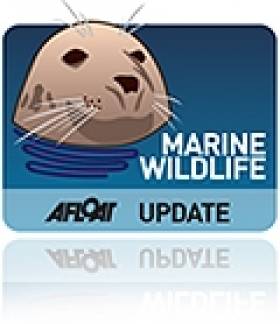Displaying items by tag: Pauline Beades
Wildlife Groups Pledge Union With Oil Spill Response Plan
#MARINE WILDLIFE - The Evening Herald has highlighted the work of a new union of wildlife protection groups which is training volunteers to act the event of serious environmental threats to Ireland's sea bird population.
Wildlife rescue volunteer Pauline Beades from Garristown in north Co Dublin has been working with Ireland's animal groups to change the official approach to wildlife - particularly birds - that get caught in oil spills.
The Irish Seal Sanctuary, Birdwatch Ireland, the ISPCA, the Irish Whale and Dolphin Group (IWDG), Coastwatch and Irish Wildlife Trust have written a joint "letter of comfort" for the Irish Coast Guard, which is the State body charged with dealing with coastal oil spills.
The groups have pledged to work together in the event of any oil spill that involves a threat to marine wildlife.
Their response plan involves an initial wave of volunteers walking beaches to gather affected animals and providing first aid, followed by transfering them to veterinarians in specialised field hospitals, as well as facilities for longer-term care.
Recently Beades helped train volunteers in Limerick, who also attended lectures and demonstrations from visiting wildlife rescue experts from Europe to prepare for any potential sea-borne wildlife emergency.
Concerns Over Seal Deaths in Donegal
Seven dead seals washed up in Donegal are believed to have died of natural causes - but concerns over a pattern of seal deaths nationwide remain.
As the Donegal Democrat reports, the seven grey seals - which are a protected species - were found beached along with a dead dolphin in the Rosberg area.
A ranger with the National Parks and Wildlife Service confirmed that none of the marine animals had been shot.
But Pauline Beades of the Irish Seal Sanctuary said the find was just one in a series of reports of "strange" seal deaths around the country.
“You don’t find three, four, five animals dead on a beach," she said. "I would be very concerned that this is not a normal occurrence.”
It is not yet known if a post-mortem will be carried out in the dead seals, but members of the public are encouraged to report any similar finds as the thocine distemper virus has been responsible for seal deaths in the past.
Beades said that grey seals are now having their young, and asked the public to keep an eye out for seal pups and report anything that looks suspicious in the area.
The Donegal Democrat has more on the story HERE.

























































